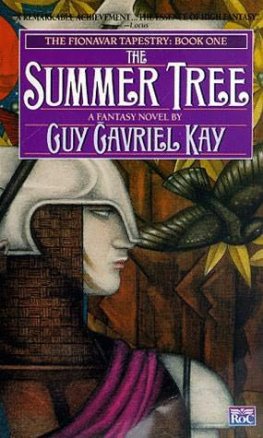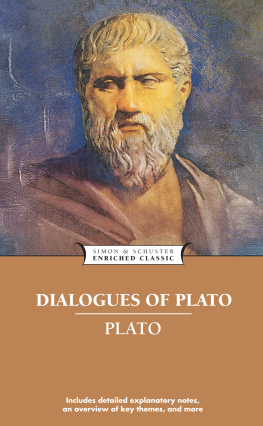BARON SUYEMATSU
AUTHOR OF 'THE RISEN SUN'
London
ARCHIBALD CONSTABLE AND COMPANY, LTD.
1905
LE SAMURAI
C'tait un homme deux sabres.
D'un doigt distrait frlant la sonore bva,
A travers les bambous tresss en fine latte,
Elle a vu, par la plage blouissante et plate,
S'avancer le vainqueur que son amour rva.
C'est lui. Sabres au flanc, l'ventail haut, il va.
La cordelire rouge et le gland carlate
Coupent l'armure sombre, et, sur l'paule, clate
Le blason de Hizen et de Tokugawa.
Ce beau guerrier vtu de lames et de plaques
Sous le bronze, la soie et les brillantes laques
Semble un crustac noir, gigantesque et vermeil.
Il l'a vue. Il sourit dans la barbe du masque,
Et son pas plus htif fait reluire au soleil
Les deux antennes d'or qui tremblent son casque.
JOS-MARIA DE HEREDIA.
PREFACE
In the following pages I have depicted certain Japanese ideals and notions, as well as some historical facts which seemed likely to interest those of the sympathetic Western public who may be inclined to study the mental side of Japan.
The dialogues are founded upon actual conversations, not indeed always in exactly the same phraseology, nor under exactly the same circumstances, but something very like. The questions put into the mouths of the characters in the book are the kind of questions which are being constantly put to me, and my answers are always on the same lines; so that my readers may regard the book as a serious treatise so far as the materials are concerned. This is the reason why I have written this book in a light, conversational style, and not in the form of an ordinary critical or expository treatise. Besides, I thought that more lucidity of exposition and more penetration into the inner views could be achieved by writing in the way I have done.
The period to which these conversations relate is chiefly the summer of the present year, 1905, and the greater part of this book was written before peace was concluded, and therefore there may be occasionally some dicta which sound somewhat polemic. On that point I can request my readers to show leniency.
I have appended to the dialogues a few papers on various subjects. They deal with subjects germane to those treated in the body of the work, and it is hoped that they will afford the reader first aid in acquiring information relative to the analysis of Japanese social life which has here, however imperfectly, been attempted.
I may add a few words. In publishing this volume, I am not in the least degree actuated by a desire to exalt my country unduly,still less to boast about her achievements. My sole object has been to show Japan as she is, and to claim Occidental sympathy to such a degree as she may deserve.
K.S.
PARIS, November 1905.
CONTENTS
The issue of the warSome ForecastsEnglish and French papersPolitical situation in the summer of 1905 BeaconsfieldJapanese fictions and their plotsSome similarities between the customs of Greece, Rome, and JapanLove storiesA Japanese love taleCustom of adoptionJane Eyre and JapanJapanese art Japanese gardeningFull description of marriage ceremoniesPreliminary inquiriesDescription of the rooms, and decorationsButterfliesThe banquetWedding presentsPosition of the women in JapanJapanese mothers and wivesA Samurai mother illustrated by a dramaLays of Ancient Rome and Commandant HirosJapanese notions of pardon and forgivingTrip to Japan.
Greek inspirationSemitic sympathyReligionDifference between Japanese and European chivalryWhat is the Bushi?The weakest point of a hereditary military organisationIntroduction of the new systemNew commoners and the history of their emancipationCombination of democratic ideas and conservative traditionsOld bottles and new wineThe Great Change of 1867NapoleonNegligence of a proper estimationScenery of Japan-History of TokioEuropean and Japanese method of dwellingPresident Roosevelt and jiujitsu.
Japanese art and the WestNight-ftesSale of flowers and plantsSinging InsectsA discussion on the moon, flowers, snow, etc.Music of snow and rainLines on hailstonesA particular evening for lunar perspectiveA blind scholar and his wifeThe deaf, dumb, and blind of JapanThe calendar and its radical change in JapanCalumnies on Japan, and an anonymous letterJapanese ways of counting agesThe question of women and a lady's opinion on Japanese womenLafcadio HearnJapanese namesDifficulty of distinguishing between 'L' and 'R'Discussion on pronunciationLondon and Tokio patoisJapanese nobility and the method of addressing nobilityBooks on JapanOnce more on Lafcadio HearnDiscussion on women's educationThe Risen Sun.
A talk on brackensEating of fruits without peelingA pet tortoiseRemarks on languagesDiscourses on jiujitsuComparison of jiujitsu and wrestlingJapanese art and the KokkwaPictures in the GospelDiscourse on Bushido, its history and the origin of the termExplanation of the terms Daimio, Samurai, and BushiIts literatureJapanese revenge and European duelJapanese swordSoul of SamuraiGeneral Stoessel and a broken swordDiscussion on Japanese social moralityJapan far cleaner than any other nationThe condition at the time of the transitionGeneral view of the westernised JapanOccidental vulgarity.
Some observations fit on peace prospectsDiscussion on Anglo-French-Russo-Japanese ententeRussian views of the JapaneseDiscussion on religion and JapanJapan and the International ConventionsThe meaning of religionGeneral NogiA high-priest on Japan and RussiaThe Japanese conception of deathA quotation from an old book on BushidoThe notion of the nameFurther remarks on the Russian views of the JapaneseEngland and AmericaThe outbreak of the warA wanton project of the Russian admiral restrained by the French admiralDiscussion on the Yellow Peril and Pan-Asiatic ambitionJapan not a small countryFrench poor in the cavesParis by nightSir Stamford Raffles and his appreciation of Japan ninety years ago Patriotism and FranceLa France, c'est le pays de mon curA romantic and tragical storyDiscussion on Socialism and JapanEngland and AmericaDiscussion on the word 'Revolution'The Great Change of Japan in 1867Its political and social effectsA comparison with the French RevolutionDiscussion on unity and continuity of authorityAn anonymous pamphletDiscussion on the relative position of the French Nationalists and Socialists with regard to JapanFrench thrift.
The age of the JapaneseIto and InouyIntermarriagesCommander HirosSome abuse of the Japanese nationalityThe climate of JapanChrysanthemumsJapanese rainThe two great currentsHow Japan developedSummer resorts of foreignersSpring and autumnPicnicsSportsA letter by an AmericanPastimes of the Japanese gentryDescription of the Japanese chess and the game of 'Go'Description of Japanese cardsPoem cardsFlower cardsPierre LotiPublic bathsAn interview on common and military education in JapanGeorge Washington and NelsonThe cause of Russian defeats according to the wounded.
Some talk on superstitionA remark on earringsJapanese troops after the war; no fear of ChauvinismGenerals and officersHow the system of the hereditary military service was abolished and the new system was introducedIts historyJapan after the warViews given to the American pressMr. Seppings-Wright and his views on the Japanese characterThe Japanese navy and its historyOrigin of the shipbuilding yardsThe difficulty of a thorough reform in China and RussiaHow Japan managed to bring about the consummation of the great reformThe feudal system was a great helpExplanation of the Japanese feudal system and the clansThe re-shuffling of the feudatories under the Tokugawa rgimeDifference of grandeur of the feudatoriesExceptional formation of the Satsuma clanFinancial system of the ShogunateFinance of the Imperial Government at the beginning of the Great ChangeHow the affairs of the governments of the feudatories were wound upThe old system of taxationThorough reformThe old notion of land tenure.












